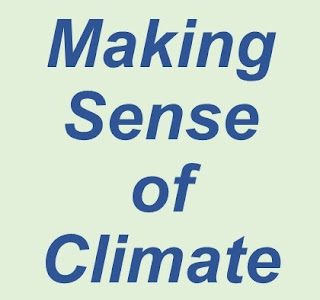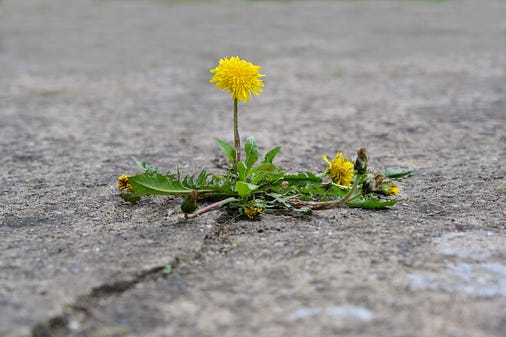As another year winds down... As we look to the future... and ponder a perilous time in this nation's history... As we contend with global challenges... ... with our environment... ... our health... ... our systems and notions of justice ...
There is no shortage of adjectives to apply to our times - dire, dangerous, and demoralizing, to name a few (and that's just for the letter D). Today, however, we wanted to explore one closer to the end of the alphabet - vulnerable.
Perhaps it is another looming wave of Covid, perhaps it is the multiple threats we face to our democracy, perhaps it is a season when we reflect on the past, perhaps it is the feeling of instability that comes with aging, but a feeling of vulnerability has been a major theme in conversations we have been having with family and friends.
Vulnerability is part of the human condition, no matter the era. On a personal level, we are all vulnerable and we can see the vulnerability of those around us. Youth provides, to some, a false shield of invincibility, but life often knocks that down pretty quickly. The months I spent bed-ridden with rheumatic fever as a child is a personal reminder I carry with me.
When we look back, however, we can likely think of times when the general state of vulnerability in our communities, and the nation and world as a whole, felt far less present than it does today.
Perhaps there is something in our minds that makes us more attuned to the more immediate vulnerabilities of the present than in rememberances of the past. During the height of the Cold War, for example, there was a very real and present fear that the world could end with the push of a button. That's a lot of vulnerability to carry around with you.
Any consideration of vulnerability must also recognize that it strikes communities unevenly, depending on how they are constructed. During Jim Crow, the chasm of vulnerability Black Americans felt as opposed to their White neighbors was wide and deep. The legacies of racial hatred still remain in America and they shape vulnerabilities people feel in their daily lives.
Many of the vulnerabilities of today are such that even wealth and privilege do not feel like they are protective. The pandemic, the climate crisis, the assaults on our government are all of a nature that they put everyone and everything into a state of danger. At the same time, however, we must recognize that those on the margins of society will be most vulnerable to these changing realities.
Recently, my daughter shared an article with me that captures a major vulnerability many Americans feel today. Originally published a year ago in The Atlantic, the piece by Dani Alexis Ryskamp is entitled The Life in The Simpsons Is No Longer Attainable. Ms. Ryskamp considered the lifestyle of the titular family of the animated television series which premiered more than 30 years ago! She concluded, "The most famous dysfunctional family of 1990s television enjoyed, by today's standards, an almost dreamily secure existence that now seems out of reach for all too many Americans."
Ms. Ryskamp not only reports on the data around such things as housing and medical costs, but considers her own precarious career as a freelance writer. She didn't use the word vulnerability but it hovers over the entire piece. "For many, a life of constant economic uncertainty—in which some of us are one emergency away from losing everything, no matter how much we work—is normal," she wrote.
It is impossible to remove all of our vulnerabilities; they are intrinsic to life. But we can lessen them for ourselves, and especially for others. This is a major role of government. We can provide more safety nets for those who falter. We can reduce our damage to the environment. We can introduce measures to improve our public health. We can build systems that are more just.
Combatting vulnerability, however, is not something that can be purely accomplished on an individual level. It requires community. It requires a sense that we are in this together. It means getting vaccinated to help others, as well as yourself. It means embracing more housing, even if it's in your backyard. It means recognizing that we need to change the way we consume energy. It means paying a fair share of taxes. It means being open to the stories of people who are different from you.
In the aftermath of the recent deadly tornadoes which ripped through several states, many noted how Kentucky Senator Rand Paul asked for federal aid after years of opposing aid to other communities in need after natural disasters. In this anecdote of rank hypocrisy, we can find an important lesson. We are all vulnerable. Some of us are vulnerable in ways we feel each and every day. Others of us are more vulnerable to something we cannot predict, a sudden illness, accident, or other such calamities, like a natural disaster. At a point when our feelings of vulnerability are at a high level, perhaps we can recognize the vulnerability being felt by others.
When President Biden went to view the devastation in Kentucky, he headed to a part of the country that voted overwhelmingly for President Trump. The Washington Post wrote an article from this perspective and spoke to local residents who were appreciative of Biden't visit, even if they still didn't support him politically. Many were eager for federal help. That's okay. One doesn't have to support a politician to support the office of the Presidency or recognize the role of the government to provide aid. But the only way this works is if it goes both ways. Will these people in Trump country who are now feeling so vulnerable also support efforts to decrease the vulnerability in communities very different from theirs?
President Biden knows firsthand how vulnerable we all are to the tragic twists of fate. His life is testimony to that. In the legislation he is pushing in Congress, from infrastructure, to climate, to child tax credits, to voting rights, he is trying to address the vulnerabilities he sees in American life. His bet is that ultimately a shared sense of vulnerability can bridge our divisions. A counter-narrative to this hope is the pandemic, which has shown how a deep and pervasive vulnerability can be politicized to further drive us apart around things like vaccines, which used to be uniting. But perhaps that is because the lies people have heard about the virus have provided them with a false sense of invulnerability.
I do not know where these times will eventually lead. I do not see a quick end to the worries and vulnerabilities so many feel. But I do believe that recognizing our vulnerabilities and seeing the vulnerabilities in others can be an important part of recognizing our own humanity. And that, in turn, can be a step to building a future that feels less vulnerable.
Leave a comment
Share










